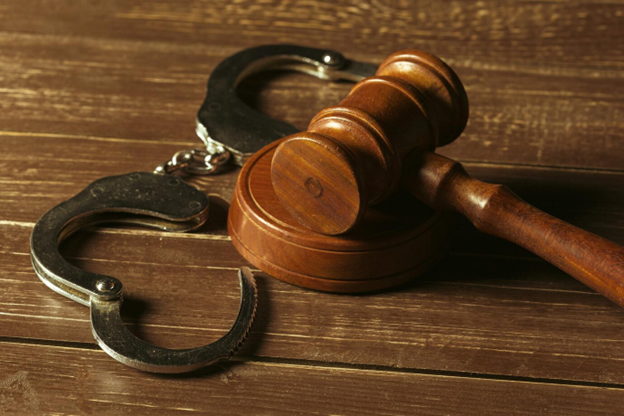When you’re far from home or even just navigating unfamiliar legal territory, the stakes can feel incredibly high—especially if you’re facing criminal charges. Whether you’re a local resident or a foreign national, understanding how Criminal Law in Thailand works can be the first step toward protecting your rights and your future.
At PDLegal Thailand, we understand that legal challenges can be overwhelming. That’s why our team is here to help you through each stage of the criminal process with clarity, care, and professionalism. Our experienced lawyers are committed to providing practical guidance for those dealing with issues involving Criminal Law in Thailand—from investigation to trial and beyond.
Understanding Criminal Law in Thailand
Criminal Law in Thailand governs offenses considered harmful to individuals and society. It sets out what constitutes a criminal act and outlines the procedures followed when someone is accused of breaking the law. Like most legal systems, it includes rules about arrests, investigations, charges, trials, and sentencing.
Thailand’s criminal justice process includes several stages: investigation, prosecution, and judicial proceedings. Each step must follow formal procedures to ensure the rights of the accused are respected while maintaining the integrity of the justice system.
Key Offenses under Criminal Law in Thailand
Criminal Law in Thailand covers a broad range of offenses. Common categories include:
- White-Collar Crimes – Such as fraud, embezzlement, and forgery.
- Drug Offenses – Including possession, distribution, and trafficking.
- Theft and Property Crimes – Burglary, robbery, and vandalism.
- Violent Crimes – Assault, homicide, and other serious offenses.
- Cybercrimes – Online fraud, data theft, and hacking.
- Immigration Violations – Overstays, visa fraud, and related matters.
Each type of offense may be met with a different procedure or severity in penalties under Criminal Law in Thailand.
Legal Procedures under Criminal Law in Thailand
Legal procedures under Criminal Law in Thailand typically begin with a police investigation. If there is sufficient evidence, a case is referred to the public prosecutor, who may then file formal charges in court.
Throughout the process, the accused has the right to legal representation, to remain silent during interrogation, and to a fair trial. The courts in Thailand follow the adversarial system, where both the prosecution and the defence present their case before a judge.
Legal Representation in Criminal Law in Thailand
Having professional legal support is crucial when navigating Criminal Law in Thailand. At PDLegal Thailand, we offer full-spectrum criminal defence services, supporting clients from the moment of arrest through to court proceedings and appeals.
Our team understands the complexities of local procedures, and we provide tailored strategies to suit each unique situation—ensuring that our clients’ rights and interests are always protected.
Criminal Law in Thailand for Foreign Nationals
Foreign nationals facing charges under Criminal Law in Thailand may experience additional complications due to language barriers, visa issues, or unfamiliarity with local practices.
PDLegal Thailand offers support in English and other languages to ensure that foreign clients are informed, represented, and protected at every step of the legal journey.
White-Collar and Commercial Offenses under Criminal Law in Thailand
Modern business environments come with risks. Accusations of corporate fraud, insider trading, or financial misconduct are increasingly common and fall under the scope of Criminal Law in Thailand.
Our legal team is well-equipped to assist clients in commercial sectors who require clear, strategic defence in white-collar criminal matters.
Why Choose PDLegal for Criminal Law in Thailand
PDLegal Thailand offers practical experience, legal insight, and a deep understanding of Criminal Law in Thailand. Our team is experienced in a wide range of criminal cases and is committed to working closely with clients through every phase of their legal matter.
We know how stressful it can be to face criminal allegations, especially in a foreign legal environment. That’s why we make the process as clear and manageable as possible, offering dedicated service with professionalism and compassion.
Conclusion: Navigating Criminal Law in Thailand with Confidence
No one expects to find themselves dealing with criminal charges—but when it happens, knowing your rights and having the right team by your side can make all the difference. Criminal Law in Thailand is complex, but with the right legal guidance, you can navigate it confidently.
Whether you’re facing charges or simply seeking advice, PDLegal Thailand is here to support you.
FAQs
What is the criminal system in Thailand?
What is the punishment for crimes in Thailand?
What are the strictest laws in Thailand?
What is Section 287 of the Criminal Code Thailand?
What is the most common crime in Thailand?
What type of law does Thailand have?
What type of police is Thailand?
What convictions stop entry to Thailand?
Disclaimer: This article is intended to provide general information only and does not constitute legal advice. It should not be used as a substitute for professional legal consultation. We recommend seeking legal advice before making any decisions based on the information in this article. PD Legal fully disclaims any responsibility for any loss or damage that may result from reliance on this article.

